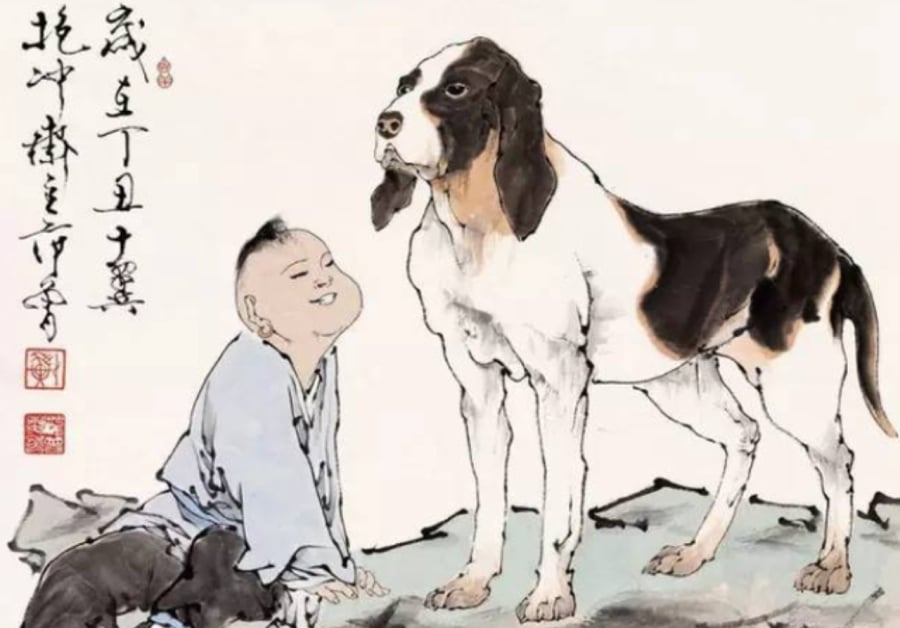Why did the ancients say, “Don’t call the dog when you’re full”?
In ancient times, the lives of the people were not yet improved. They experienced hunger and sometimes had enough to eat, working tirelessly but still lacking sufficient food.
During famine, people had little to eat themselves, let alone spare food for their pets. It is worth noting that in those days, dogs were kept for guarding the house or helping the owner make a living by hunting.
According to the ancients, a well-fed dog becomes lazy and indifferent. No matter how much its owner shouts, it will remain immobile.
Hence, the belief that dogs should only be fed enough to keep them hungry and obedient, ensuring they remain active and responsive to commands.

The ancients believed that a well-fed dog would become lazy and indifferent, regardless of its owner’s commands. (Illustrative image)
Interestingly, the ancients also valued inherent virtues. They believed that when a task needed to be done, there should be no delay or hesitation. Procrastination, in their view, could lead to disaster.
Even when it came to feeding their dogs, they would only give them half a fill. Otherwise, the dogs would only sleep after eating, and intruders could break into the house unnoticed. This is the reason behind the ancient saying, “Don’t call the dog when you’re full.”
What is the second part of this ancient saying?
The second part of this proverb is, “Don’t be too good to people.”
When combined, these two parts embody the complete thought. The latter part reflects the ancient wisdom and philosophy in dealing with people.
Human nature is complex and unpredictable; it is easy to misjudge someone’s intentions. Treating people too well can sometimes lead to trouble.
The ancient saying, “Don’t be too good to people,” is similar to the proverb, “A measure of rice nurtures gratitude, but a measure of hatred nurtures enmity.”
If you help someone, they will be grateful. However, if you continue helping them indefinitely, they may come to expect it, and when you stop, they may turn against you.
Human desires are endless, and if someone’s demands exceed your capacity, all your previous good deeds may be forgotten, and they may come to resent or turn their back on you.
Through the saying, “Don’t call the dog when you’re full, don’t be too good to people,” the ancients imparted their wisdom, which remains valuable even in modern times.
The Art of Home: Redefining Space and Its Inhabitants
“The allure of owning a grand home is a dream for many. However, as the ancient proverb goes, ‘A big house with few inhabitants becomes a desolate place.’ Why did our ancestors coin this phrase? In truth, this notion has sparked a myriad of joys and sorrows, unions and separations since time immemorial.”
The Fortunate Few: A Life Transformed From Struggles to Success and Serenity
“Ancient wisdom suggests that those with a certain numerical ending to their lunar birth date are destined for a fortunate shift in their life path. Despite any struggles in their early years, these individuals are said to experience a turning point, leading to a life of comfort and ease during their middle age.”



































